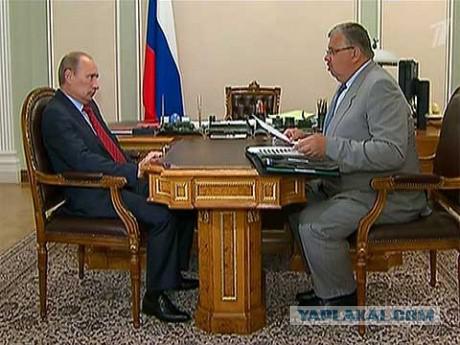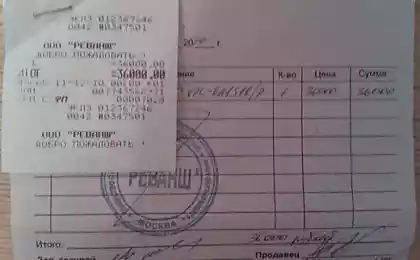520
Soon and parcels will pay taxes!
The question of tightening control over the parcel with goods purchased in foreign online stores, apparently, settled.
The sentence "regulate the Internet trade" supported by President Vladimir Putin. Online retailers do not exclude that it could be not only the imposition of additional import duties on parcels, but also the strengthening of control over online commerce stores operating in Russia.
Only in the first nine months of this year Russian citizens paid abroad goods at $ 2, 67 billion, and the e-commerce market in the country has already reached $ 10, 4 billion.
"I know that on the initiative of the government fiscal authorities prepare proposals to streamline e-commerce", - Vladimir Putin said yesterday, asking the Federal Assembly to make "proposals in this regard."
Continued under the cut ...

According to him, these revenues will overcome the barrier to the construction of affordable housing in the country, namely the shortage of funds for provision of engineering infrastructure - the construction of sewerage, water, gas and electricity supply. In fact, the president supported the proposal of the Federal Customs Service (FCS), which intends to impose a parcel from abroad 10 percent tax, as well as to reduce the number of non-dutiable parcels to one per month per person. In 2012, Russia imported 7 million parcels; total value of goods FCS is estimated at € 2, 8 billion. That is, it would be possible to collect € 280 million in the budget.
Now the Russians, getting the mail goods abroad worth more than € 1 thousand. Per month, and weighing more than 31 kg, shall pay 30 per cent duty on the value of the goods, but not less than € 4 per 1 kg of body weight. At the same time, goods worth up to € 1 thousand. Per month, and weighing up to 31 kg are allowed to import duty-free mail. Such purchases are very popular among Russians: the volume of parcels from abroad in 2009, growing annually by 50%.
According PricewaterhouseCoopers, from 2008 to 2012 the volume of e-commerce market in Russia grew from $ 3, 5 billion to $ 10, 4 billion, while the number of internet users in December last year was already 68 million people, of whom 11 million are online shoppers . The volume of the Russian market of e-commerce will grow to $ 36 billion by 2015, reaching 4, 5% of all retail sales, estimated at Morgan Stanley in January. According to the CBR, in the first nine months of 2013, Russian citizens paid abroad goods worth $ 2, 67 billion for all of 2012 - to $ 3, 36 billion.
According to Vladimir Putin about the "streamlining of e-commerce" could be understood in different ways, said the head of the Russian office of the American online auction site eBay Vladimir Dolgov. "But maybe it's for the fact that most of the online stores in Russia will not knock checks? Mention of cross-border trade because there was no "- says Mr. Dolgov. If we talk about the initiative of the Federal Customs Service, it "should be linked to numerous laws, including the interstate," he says. "There is another contradiction: if we are with you and fly abroad, we can bring a suitcase, which can be goods worth up to € 10 thousand. Per month", - says Vladimir Dolgov, adding that he was ready to discuss the initiative with officials. < br /> Perhaps the officials misunderstood thesis lobbyists domestic online retailers that foreign online shopping does not make sense to invest in the development of logistics infrastructure in Russia, says partner Data Insight Boris Ovchinnikov. This problem really is, because in Russia there is "excessively preferential treatment for purchases abroad," said Mr. Ovchinnikov. "Foreign Internet stores is increasing competition for the domestic retail market," - he admits.
The State Duma as quickly as possible to prepare a bill to regulate e-commerce, said State Duma Deputy Speaker Sergei Zheleznyak. Deputy Prime Minister Arkady Dvorkovich, "heard about the idea of the FCS, it needs to be discussed", said its secretariat.
But from here: www.tks.ru/reviews/2013/12/13/02 < br />
Source:
The sentence "regulate the Internet trade" supported by President Vladimir Putin. Online retailers do not exclude that it could be not only the imposition of additional import duties on parcels, but also the strengthening of control over online commerce stores operating in Russia.
Only in the first nine months of this year Russian citizens paid abroad goods at $ 2, 67 billion, and the e-commerce market in the country has already reached $ 10, 4 billion.
"I know that on the initiative of the government fiscal authorities prepare proposals to streamline e-commerce", - Vladimir Putin said yesterday, asking the Federal Assembly to make "proposals in this regard."
Continued under the cut ...

According to him, these revenues will overcome the barrier to the construction of affordable housing in the country, namely the shortage of funds for provision of engineering infrastructure - the construction of sewerage, water, gas and electricity supply. In fact, the president supported the proposal of the Federal Customs Service (FCS), which intends to impose a parcel from abroad 10 percent tax, as well as to reduce the number of non-dutiable parcels to one per month per person. In 2012, Russia imported 7 million parcels; total value of goods FCS is estimated at € 2, 8 billion. That is, it would be possible to collect € 280 million in the budget.
Now the Russians, getting the mail goods abroad worth more than € 1 thousand. Per month, and weighing more than 31 kg, shall pay 30 per cent duty on the value of the goods, but not less than € 4 per 1 kg of body weight. At the same time, goods worth up to € 1 thousand. Per month, and weighing up to 31 kg are allowed to import duty-free mail. Such purchases are very popular among Russians: the volume of parcels from abroad in 2009, growing annually by 50%.
According PricewaterhouseCoopers, from 2008 to 2012 the volume of e-commerce market in Russia grew from $ 3, 5 billion to $ 10, 4 billion, while the number of internet users in December last year was already 68 million people, of whom 11 million are online shoppers . The volume of the Russian market of e-commerce will grow to $ 36 billion by 2015, reaching 4, 5% of all retail sales, estimated at Morgan Stanley in January. According to the CBR, in the first nine months of 2013, Russian citizens paid abroad goods worth $ 2, 67 billion for all of 2012 - to $ 3, 36 billion.
According to Vladimir Putin about the "streamlining of e-commerce" could be understood in different ways, said the head of the Russian office of the American online auction site eBay Vladimir Dolgov. "But maybe it's for the fact that most of the online stores in Russia will not knock checks? Mention of cross-border trade because there was no "- says Mr. Dolgov. If we talk about the initiative of the Federal Customs Service, it "should be linked to numerous laws, including the interstate," he says. "There is another contradiction: if we are with you and fly abroad, we can bring a suitcase, which can be goods worth up to € 10 thousand. Per month", - says Vladimir Dolgov, adding that he was ready to discuss the initiative with officials. < br /> Perhaps the officials misunderstood thesis lobbyists domestic online retailers that foreign online shopping does not make sense to invest in the development of logistics infrastructure in Russia, says partner Data Insight Boris Ovchinnikov. This problem really is, because in Russia there is "excessively preferential treatment for purchases abroad," said Mr. Ovchinnikov. "Foreign Internet stores is increasing competition for the domestic retail market," - he admits.
The State Duma as quickly as possible to prepare a bill to regulate e-commerce, said State Duma Deputy Speaker Sergei Zheleznyak. Deputy Prime Minister Arkady Dvorkovich, "heard about the idea of the FCS, it needs to be discussed", said its secretariat.
But from here: www.tks.ru/reviews/2013/12/13/02 < br />
Source:























